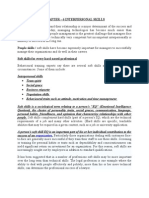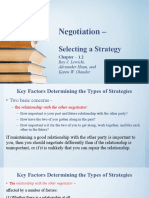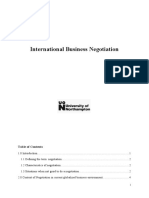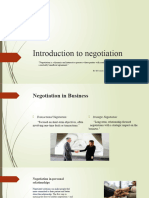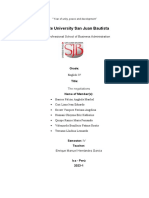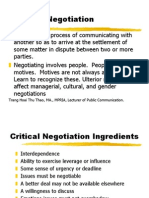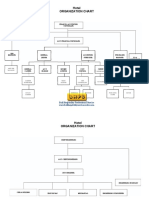0% found this document useful (0 votes)
71 views15 pagesResearch
The document discusses the importance of negotiation skills and face-to-face learning in improving those skills for home economics students. It states that negotiation skills are important in daily life both personally and professionally. The study aims to determine the effectiveness of face-to-face learning in improving negotiation skills of home economics students at Top Link Global College. Behavioral decision theory and maintaining relationships are important frameworks for understanding negotiation. The results of the study will benefit students by providing knowledge on academic performance, teachers by guiding classroom management, and the school by promoting growth.
Uploaded by
Dimple LapuzCopyright
© © All Rights Reserved
We take content rights seriously. If you suspect this is your content, claim it here.
Available Formats
Download as DOCX, PDF, TXT or read online on Scribd
0% found this document useful (0 votes)
71 views15 pagesResearch
The document discusses the importance of negotiation skills and face-to-face learning in improving those skills for home economics students. It states that negotiation skills are important in daily life both personally and professionally. The study aims to determine the effectiveness of face-to-face learning in improving negotiation skills of home economics students at Top Link Global College. Behavioral decision theory and maintaining relationships are important frameworks for understanding negotiation. The results of the study will benefit students by providing knowledge on academic performance, teachers by guiding classroom management, and the school by promoting growth.
Uploaded by
Dimple LapuzCopyright
© © All Rights Reserved
We take content rights seriously. If you suspect this is your content, claim it here.
Available Formats
Download as DOCX, PDF, TXT or read online on Scribd
/ 15



